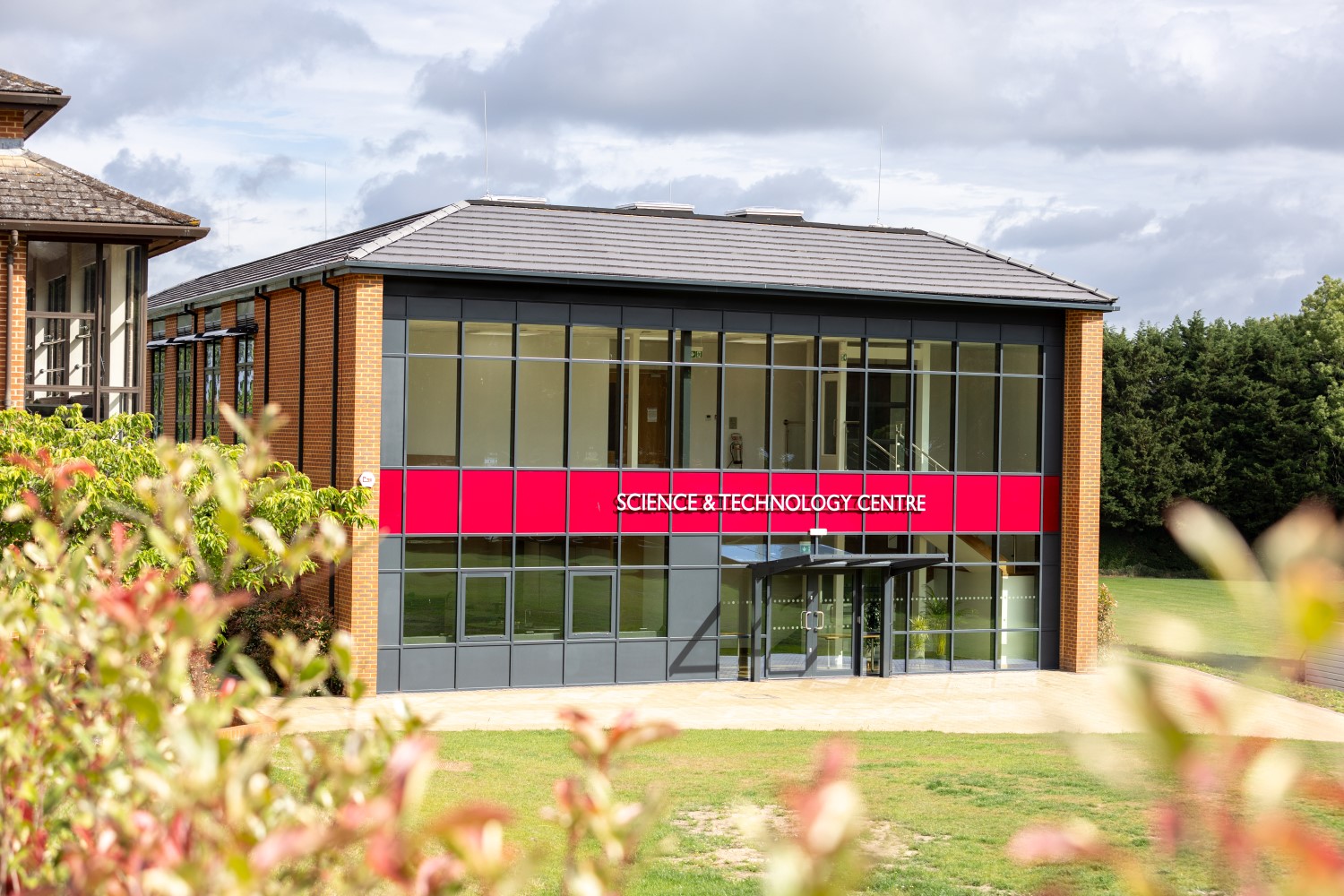
The Reasons for Construction Project Delays
Embarking on a construction project is a complex and multifaceted endeavour, with numerous variables that can either propel it forward or hinder its progress. Delays in construction projects are not uncommon and can stem from a variety of sources, resulting in broken budgets, missed deadlines, and even putting a stop to projects altogether.
Modulek are experts in modern construction, and, in this article, we will delve into the top reasons and causes for construction project delays. We aim to shed light on critical factors, such as planning, weather, safety issues, and supply chain challenges, all whilst offering solutions, to help you get your project approved and completed on time and within budget.
1. Poor Communication
Effective communication is the glue that holds construction projects together. Conversely, poor communication can unravel even the most meticulous plans. Misunderstandings, delayed information flow, and a lack of clarity lead to confusion, disputes, and ultimately project delays. Addressing communication challenges is crucial for maintaining project momentum.
Construction projects involve numerous parties: architects, contractors, subcontractors, suppliers, regulatory bodies and more. Inadequate communication and coordination among these entities can lead to discrepancies, delays in decision-making, and conflicts — all the things you don’t want on a high-value project.
You can avoid this situation by following these best practices:
- prioritise stakeholder coordination
- ensure timely information sharing
- maintain clear documentation
- conduct regular project meetings
- establish conflict resolution protocols
- integrate technology
- provide transparent project updates
This way, construction teams can strengthen the communication of their projects, and promote a collaborative environment where everyone is working towards the common goal of project success.
2. Labour Challenges
In recent years, the construction industry has grappled with a persistent challenge — labour shortages. A scarcity of skilled workers, experienced craftsmen, and other essential labourers can significantly impede the progress of a construction project. The reasons behind these shortages are diverse, including demographic shifts, changing immigration laws, an ageing workforce, and a lack of interest in construction careers among younger generations.
Labour shortages not only impact the speed of project completion but also pose risks to overall project quality. Overburdened workers may face burnout and compromise on safety standards, leading to potential accidents and further delays.
Addressing labour shortages requires a multi-faceted approach. Construction firms must invest in recruiting and training programs to develop the next generation of skilled workers, but that’s a long-term matter. The more immediate answer is offering competitive wages and benefits to attract and retain skilled workers in a highly competitive labour market.
It is imperative for project managers to continually assess their workforce needs, adapt recruitment strategies, and foster a positive working environment to overcome the challenges posed by labour shortages.
3. Poor Planning
Effective planning is the linchpin of construction project management, serving as the foundation upon which all successful projects are built. Inadequate or hasty planning can lead to a cascade of issues down the line, derailing timelines and causing costly delays. A comprehensive planning phase involves multiple facets that demand careful consideration.
- Thorough Project Scoping: Defining the project scope in granular detail is the starting point. Ambiguities in project requirements can lead to misunderstandings, changes mid-course, and subsequent delays. Project managers must collaborate closely with stakeholders to create a detailed scope that accounts for all aspects of the construction endeavour.
- Realistic Timelines: Establishing realistic timelines is pivotal in preventing overambitious scheduling that can set the stage for disappointment. Project managers should consider potential obstacles, such as weather disruptions or regulatory approvals, when developing project timelines. A well-padded schedule provides flexibility and accounts for unforeseen challenges.
- Risk Assessment and Mitigation: Identifying potential risks early on allows project managers to devise strategies for mitigation. Unforeseen challenges, such as geological issues, permitting delays, or unexpected safety concerns, can be addressed proactively. A robust risk management plan ensures that the project team is prepared to handle unforeseen circumstances, minimising the impact on timelines.
- Collaborative Communication: Transparent and effective communication among all project stakeholders is paramount. Regular meetings, progress reports, and a feedback loop facilitate a collaborative atmosphere, enabling the project team to address issues promptly. Clear communication helps in resolving misunderstandings, preventing scope creep, and maintaining a shared understanding of project objectives.
- Technology Integration: Embracing technological tools and project management software enhances planning precision. Virtual design and construction (VDC), Building Information Modelling (BIM), and project management software streamline collaboration, improve data accuracy, and enhance decision-making. Integrating technology into the planning process ensures that all stakeholders are on the same page and have access to real-time information.
- Contingency Planning: Acknowledging that unexpected challenges will arise, contingency planning is essential. Establishing contingency budgets and schedules provides a safety net for unforeseen circumstances, reducing the impact of disruptions on the overall project timeline.
4. Weather Woes
One of the most unpredictable and uncontrollable factors affecting construction projects is the weather. Construction schedules are inherently sensitive to climatic conditions, and adverse weather events can exert a significant impact on project timelines. Understanding, preparing for, and adapting to the whims of nature are crucial components of effective project management.
Different seasons present unique challenges. Winter conditions may bring freezing temperatures, snow, and ice, impacting excavation, concrete curing, and overall construction productivity. In contrast, scorching summer heat can impact the working conditions of labourers, and the curing of materials.
Excessive rainfall can lead to muddy and unstable work sites, hindering excavation, and causing delays. Flood-prone areas pose additional challenges, potentially requiring special precautions and construction methods.
Advanced weather forecasting technologies provide project managers with real-time data and forecasts. Integrating these tools into project management systems allows for timely decision-making and adjustments to construction schedules based on accurate weather predictions. This proactive approach helps mitigate the impact of adverse weather conditions on project timelines.
Furthermore, recognising the inevitability of weather-related disruptions, construction schedules should be flexible enough to accommodate delays. Allocating additional time for weather contingencies in the project timeline ensures that unexpected interruptions do not lead to cascading delays, giving construction teams the leeway to recover lost time.
5. Safety Issues
Ensuring a safe working environment is paramount in the construction industry. Unforeseen safety concerns, accidents, or the discovery of hazardous materials on-site can halt work temporarily or even indefinitely.
Prioritising and enforcing strict safety protocols, along with regular training for all workers, can help minimise these risks and contribute to the smooth progression of the project.
6. Supply Chain Issues
The modern construction industry relies heavily on a complex network of suppliers and vendors. Delays in the delivery of essential materials or equipment can create a domino effect, disrupting the entire project timeline. Unforeseen disruptions, such as natural disasters or global events, can have ripple effects on the supply chain.
Building strong relationships with reliable suppliers is a cornerstone of effective supply chain management. Establishing clear communication channels, understanding lead times, and negotiating favourable terms can contribute to a smoother flow of materials. Diversifying suppliers and having backup options can provide resilience in the face of unexpected disruptions.
It’s important to note that the construction industry is not immune to global events and market fluctuations that impact the supply chain, either. Economic downturns, geopolitical tensions, and pandemics can disrupt the production and transportation of materials. Staying informed about global trends and diversifying sourcing strategies helps mitigate the impact of unforeseen external factors.
7. Budget Inaccuracies
Construction projects often face budgetary constraints, and inaccuracies in financial planning can lead to delays. Underestimating costs, unexpected expenses, and inadequate financial monitoring can all contribute to project setbacks.
Inaccuracies typically arise when aspects of the project are overlooked or underestimated. Project managers must consider all potential costs, including materials, labour, equipment, permits, and contingencies. Engaging with experienced estimators and regularly updating cost estimates as the project progresses helps align budgets with the evolving needs of the construction.
Despite meticulous planning, unforeseen challenges can emerge. Establishing contingency budgets to accommodate unexpected costs is an essential risk management strategy. Contingency funds act as a safety net, providing flexibility in the face of unforeseen circumstances and preventing budget overruns from derailing the project.
Budgets should not be static documents but living frameworks that evolve with the project. Regular reviews of the budget, especially when there are significant changes in project scope or external factors, help maintain accuracy. Adjusting the budget in response to changing conditions ensures that financial planning remains aligned with the project’s reality.
8. Waiting Times for Approvals: Navigating Bureaucratic Channels
Obtaining necessary approvals from regulatory bodies and local authorities is a vital step in any construction project. Delays in the approval process, whether due to bureaucratic red tape or unforeseen complications, can halt progress on the ground.
Effective communication with relevant authorities, early submission of required documentation, and understanding of the approval timelines are essential in navigating this aspect of project management.
By initiating the following, project managers can navigate the regulatory maze more effectively, minimising delays and ensuring that the project progresses smoothly through the approval phase:
- early engagement
- compiling thorough documentation
- maintaining open communication
- understanding local regulations
- leveraging technology
- incorporating contingency planning
- and engaging in advocacy efforts when necessary
How do Modern Methods of Construction (MMC) Side-Step Construction Delays?
The very purpose of modular construction, a type of MMC, is to overcome costly, polluting, disruptive elements of traditional building, like delays. Also known as prefabricated or off-site construction, modular construction offers several advantages that can help prevent construction delays. This innovative approach to building involves constructing components or modules off-site in a controlled environment before transporting and assembling them on the construction site.
At Modulek, we are experts in MMC and modular construction, so we know their impact on construction delays well:
Reduced Dependency on Weather Conditions
Traditional construction projects can be significantly affected by adverse weather conditions, causing delays in material deliveries, site preparation, and construction activities. Modular construction minimises exposure to weather-related disruptions since the majority of the building components are fabricated in a controlled factory setting. This controlled environment allows for year-round production, reducing the impact of weather-related delays.
A company that has experienced this benefit first-hand is the Royal Marines Charity (RMC), whose new facility in Lympstone was completed with no impact of adverse weather.
Because the building was constructed in the factory, out of reach of the elements, it was completed with only 12 weeks on site. Traditional construction would have taken 36 weeks. The camp commandant was particularly vocal about this result. He said it takes them longer to get a toilet repaired than for Modulek to build a building!
Read the full Lympstone case study.
Parallel Workstreams
Modular construction allows for the simultaneous progress of multiple workstreams. While site preparation and foundation work are underway on-site, modules are being manufactured off-site. This parallel processing shortens the overall construction timeline, as various stages of the project can occur concurrently. The assembly of modules on-site is typically quicker than traditional construction methods, further accelerating the project schedule.
Precision and Quality Control
The manufacturing process in a controlled factory environment allows for precise and consistent construction of modules. Quality control measures are implemented at each stage of production, reducing the likelihood of errors or defects. This precision enhances the overall quality of the construction and minimises the need for rework or corrections on-site, which can be a common source of delays in traditional construction.
Predictable Schedules
Modular construction projects often benefit from more predictable schedules. Since the majority of the work occurs in a controlled environment, project managers can have a clearer understanding of production timelines. This predictability helps in better project planning, scheduling, and coordination, reducing the risk of unexpected delays.
Streamlined Supply Chain
Modular construction involves a streamlined and efficient supply chain. The assembly line production in a factory setting allows for better coordination and management of materials. Delays caused by supply chain disruptions or material shortages, common in traditional construction, are minimised through the controlled and organised nature of modular construction.
Reduced On-Site Labour Dependencies
Modular construction reduces the on-site labour requirements compared to traditional construction. Since a significant portion of the construction occurs off-site, there is less dependency on a large workforce on the construction site. This can be especially advantageous in overcoming challenges related to labour shortages, strikes, or other issues that may impact traditional construction schedules.
Minimised Site Disruptions
Traditional construction projects often face disruptions due to noise, dust, and other inconveniences associated with on-site activities. Modular construction minimises these disruptions since a substantial portion of the construction is completed off-site. This can be particularly beneficial in projects located in sensitive areas or densely populated urban environments.
Find out more about the process of modular construction with Modulek, the UK’s leading modular construction company.
The Bottom Line
For businesses, construction delays can be massive problems. They have knock-on effects on your business plans, delay your return on investment (potentially causing cash flow issues), and even cause poor publicity and shake the confidence your customers have in you. There’s no excuse for taking risks like that with your company.
There’s also the environmental cost to consider, and the impact on neighbouring land users. That includes prolonged noise, dust, mud, road traffic disruption, and an increase the carbon footprint of the project.
In traditional construction, project delays are almost inevitable. With modern construction, you avoid many of the common pitfalls.
When you get a timeline from Modulek, you know you can trust it.
Need your new building faster and without nasty surprise delays? Contact Modulek today.




